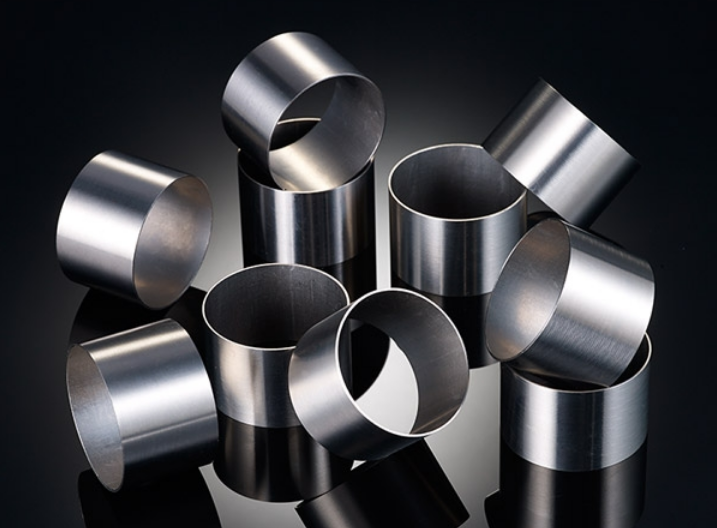Thermal conductivity of titanium
Titanium is a kind of metal, and the thermal conductivity is not moderate, but relatively considerably slower than some of our common metals. From the current data, the thermal conductivity of Welded Titanium Tube is close to that of stainless steel, which is about 1/14 of aluminum and about 1/5 of iron.
We may think that the more pure titanium metal is, the greater the hardness. In fact, titanium hardness is not large. On the contrary, some not extremely pure titanium hardness is surprisingly strong, there are some impurities that can improve its hardness.
Titanium is a rare metal.
The reason why there is such an idea is because titanium is overly stable, difficult to develop and smelt, so you see not enough naturally will think so. In fact, titanium reserves occupy 0.6% of the region, occupy the ninth place, the reserves are extremely large.

Titanium alloys are lighter than aluminum alloys.
Although titanium alloys are denser than aluminum alloys, why do some lightweight devices still use them? This is because titanium alloys have a higher strength-to-weight ratio and can be made from thinner materials to achieve the same strength and hardness. As a result, cases, parts, etc. made of titanium alloy are typically lighter than those made of aluminum.
Activity of titanium
Titanium metal shows different reaction activity at different temperatures. Titanium is extremely stable in normal temperature air and is not easy to have any reaction, but it has strong chemical activity at elevated temperature and can easily react with numerous gases.
Common applications of titanium
(1) Aerospace applications: Due to its light weight and extreme temperature resistance, it provides the aerospace industry with a variety of aircraft grade titanium alloys for the manufacture of aircraft turbine discs, blades and fuselage structural components.
(2) petrochemical use: petrochemical titanium, titanium application because of its elevated level of corrosion resistance and heat resistance, titanium raw materials are commonly used in the petrochemical industry in the heat exchanger and reactor.
(3) Medical applications: Medical grade titanium, titanium implants because of their biocompatibility with human bone and tissue, titanium rods and wires are ideal materials for medical devices. Titanium suppliers typically provide inventory of dental implants, prostheses, and bone and joint replacement procedures.
(4) Recreational uses: Titanium uses Titanium distributors are rapidly discovering a wider range of uses for titanium tubes in recreational products, including sports equipment such as bicycles, golf clubs and tennis rackets.
(5) Embellishment: Titanium sheet metal and wire have become attractive alternatives to other specialty metals used in the jewelry industry, especially in wedding jewelry.